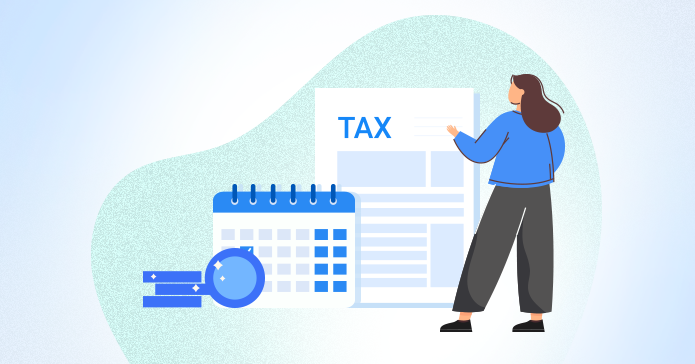As a business owner, you are probably extremely diligent when it comes to tracking your expenses and making sure that you take every deduction available to you in a world where the rising cost of living doesn`t seem to be going away anytime soon.
But even the most meticulous of business owners may not be aware of all the tax claims that are available to them. In this blog post, we will outline nine obscure tax deductions that you may be able to claim on your next tax return. So read on to learn about some deductions you may have been missing out on!
Pre Incorporation Expenses
First things first! When you have a great idea for your own business, it's time to invest in that! You can use any expenses incurred before incorporating as pre-incorporation losses if they were made within 7 years of starting up. You can balance these expenses on your first corporation tax return. As to how to treat pre-incorporation expenses, there are a few examples of what you can claim;
- Company website and domain
- Stationary, printing, posting, etc.
- Accounting or legal services that you took before incorporating
- Professional equipment expenses, related to your business. For example for a digital marketer, a PC, software, and applications help you do your work.
As long as you keep records tidy, you can claim them from HMRC. Struggling to keep records in order? We can also help you with that, get in touch with us to organise your business records.
Capital Allowance
Everyone feels sad when they are informed only expenses can reduce your taxes. What if we tell you that buying an asset can also help you save more on taxes? Businesses can deduct 100% of their investment costs from taxable income. This includes items like machines, furniture, or equipment that are bought with money spent on them and then phenomenally increased in value over time, so they'll be able to deduct more than what was actually paid back when calculating how much profit has been made during a given year- this makes sense right?
It also applies to firms who invest abroad because those investments will bring additional benefits such as cheaper goods prices thanks to tax-free.
Need a solid number? Why not have a chat with our accountant to see what your investment options are and understand their tax implications?
VAT Relief on Bad Debts
If you're a small or medium-sized business, it's important to know about this tax relief. On an accrual basis your books need, to be prepared - which means they will show how much money has come into (or gone out) from each customer relationship as opposed to when payments were actually made; otherwise known as cash-basis accounting! This allows companies like yours some extra wiggle room if their customers don't always pay up right away because then there would've been no deduction available at all based on those transactions not being reflected in enough time beforehand.
You might be able to reclaim VAT on bad debt in your next VAT return.
As to how to claim Bad Debt Relief, you need to meet some conditions;
- You must be VAT registered
- You must move the bad debt to a separate bad debt account
- The value of your service/product must not be over the market price.
- The debt must not be paid for 6 months after the payment due date.
Have all the boxes been ticked? Then you may claim that money you think you are owed.
VAT is a knotty subject. Our VAT learning hub is designed for small business owners who don`t have much time for accounting lectures. Take a look at all related VAT topics in a nutshell here.
Additionally, you can also reduce your current year's income for writing off bad debt, this means extra savings on your current year's Corporation Tax.
Training and Staff Entertainment Expenses
In general, entertainment expenses are not allowed in businesses if incurred for owners or any close associates. However, these can be deductible when they're paid to train new employees and help with their development into productive members of the company team (e:g health support staff). With only 2 months to Christmas, you may want to take a look at our office party tax implications before going full-on Ho Ho in the office. Click here
Self-Employed Pension Contributions
Do self-employed get state pensions? Yes, they do, If they paid their National Insurance Contributions.
There are many ways to save for retirement, you can get more pension by paying for a private pension on top of National Insurance, if you’re self-employed or own a limited company then the best option might be SIPP or withdrawals from payroll schemes respectively. As an individual with this type of income, it's important that contributions made go towards meeting personal limits - which means they can claim up to 25% relief on total payments when earning exceed £50,270 per year!
Don’t know how to set up a pension, get in touch with our advisor and we will suggest the best pension plan for your needs.
Pension and Salary Sacrifice
Employee and Employer salary sacrifice may be a win-win deal between parties and can have lots of benefits. For company directors, NIC axing brings you some extra cash.
The company director is in a unique position. Let’s say that you are making more than £50,270 which is subject to the higher tax rate of 40% and to be honest you don’t need that extra cash from your company. Let’s make an extra contribution by sacrificing your salary to your pension. This means no tax, or national insurance on that extra earning sacrificed.
Now you know where to put your Christmas earnings this year to save for the future.
Research and Development Tax Credit
The Research and Development Tax Credit can be a great incentive for newer companies looking to invest in new technology or enhance their existing processes. For all those at the initial stage of business, investing funds into developing something innovative will definitely qualify you as an eligible loss with this credit!
Find out more about R&D Tax Credit here, our R&D experts put together the most comprehensive tax credit guide for you.
Being one of our expertise areas, we are also ready to help you claim your R&D Tax Credit. Contact us now.
Business Asset Disposal Relief
If you are a business owner, then this is the right time to relieve your tax burden. By selling assets or ceasing trading in certain cases capital gains will be charged at just 10%.
The relief is available to all business owners, who own a business for at least 2 years, but it has particular benefits for those who are selling their assets. If you're the shareholder of an exited company and want capital gains rates on your transaction reduced from 20%, then this form (HS275) will let you do so with only 10%. Once qualified for the relief, dispose of your assets in 3 years!
The business Asset Disposal Relief Form also helps you when closing your business.













